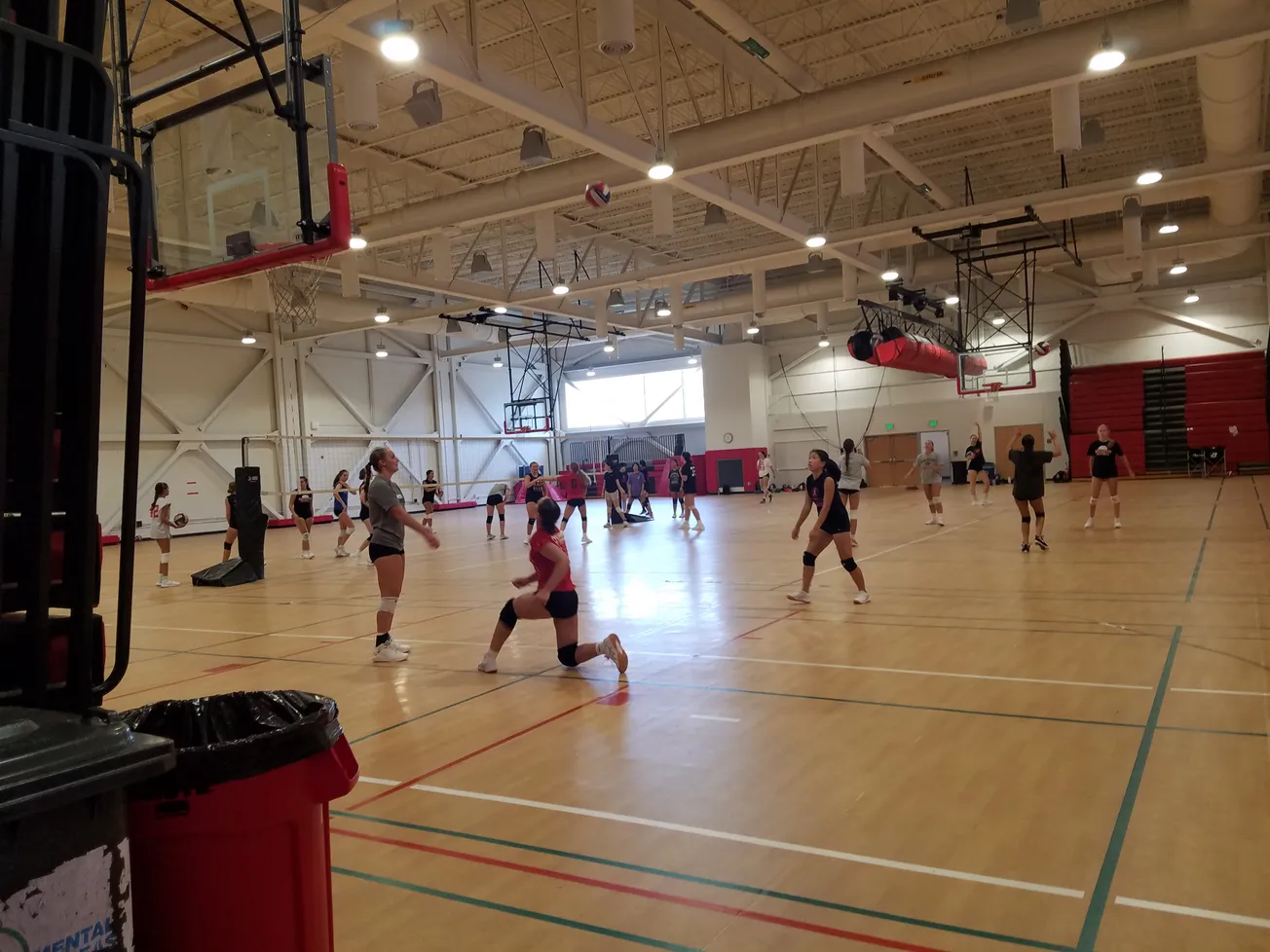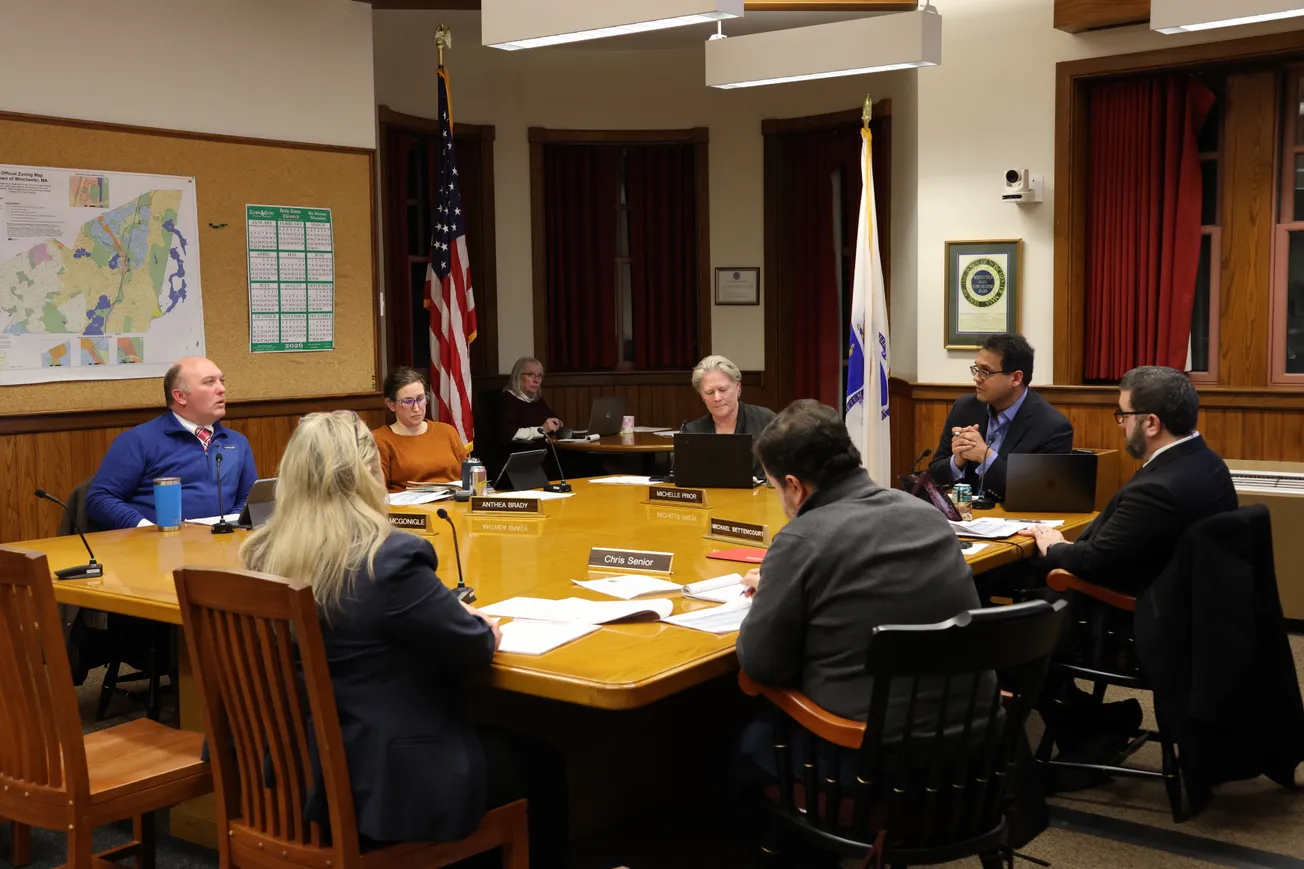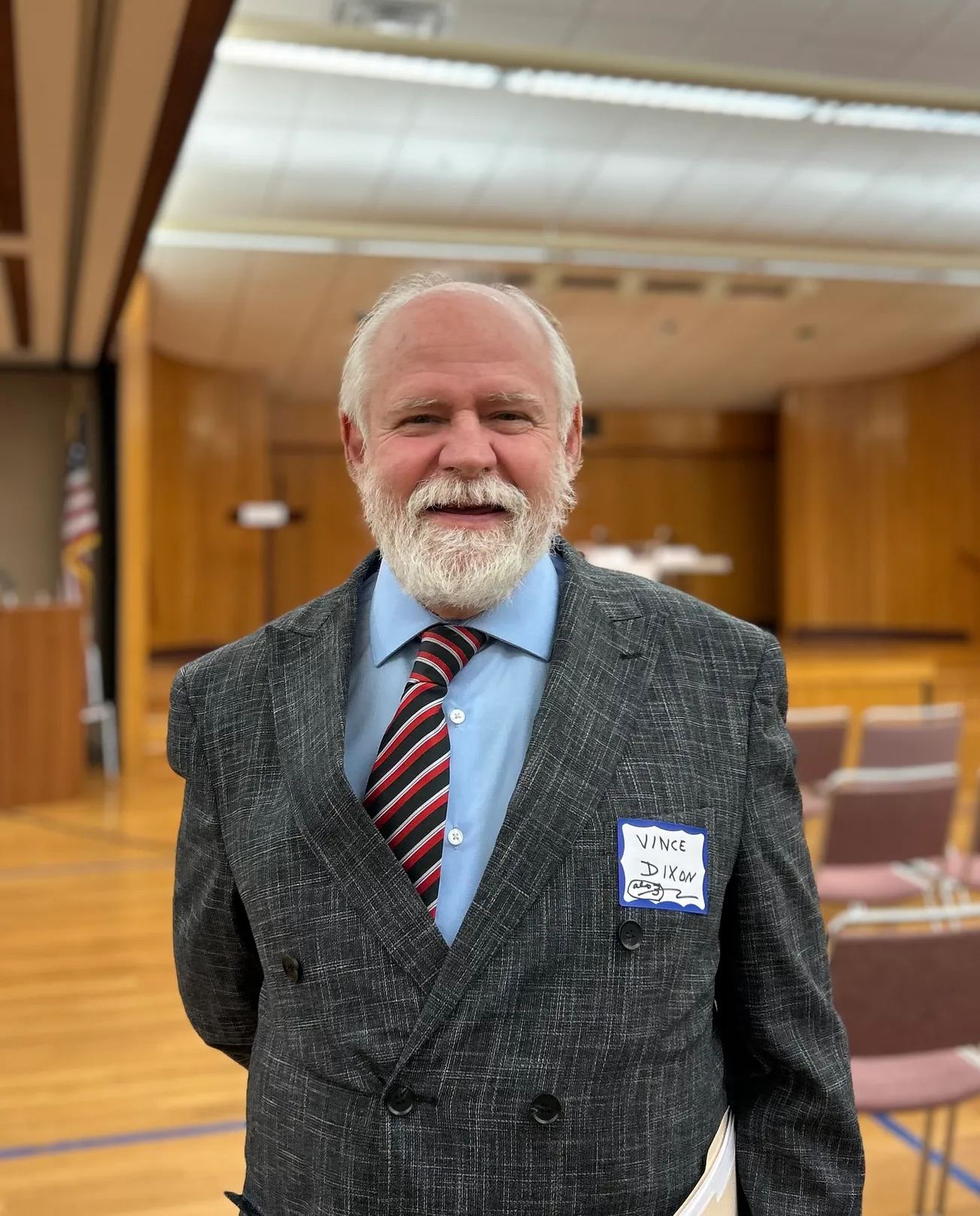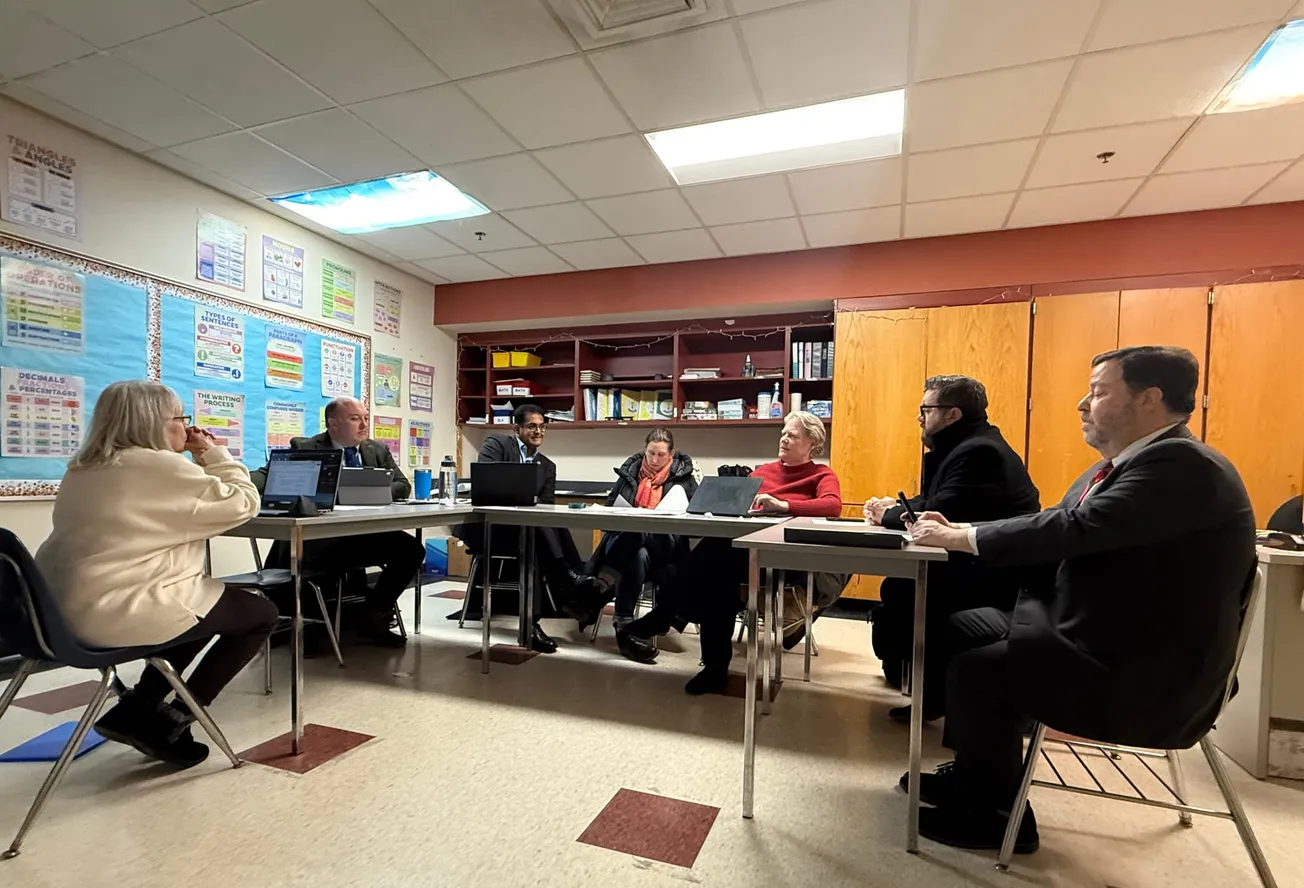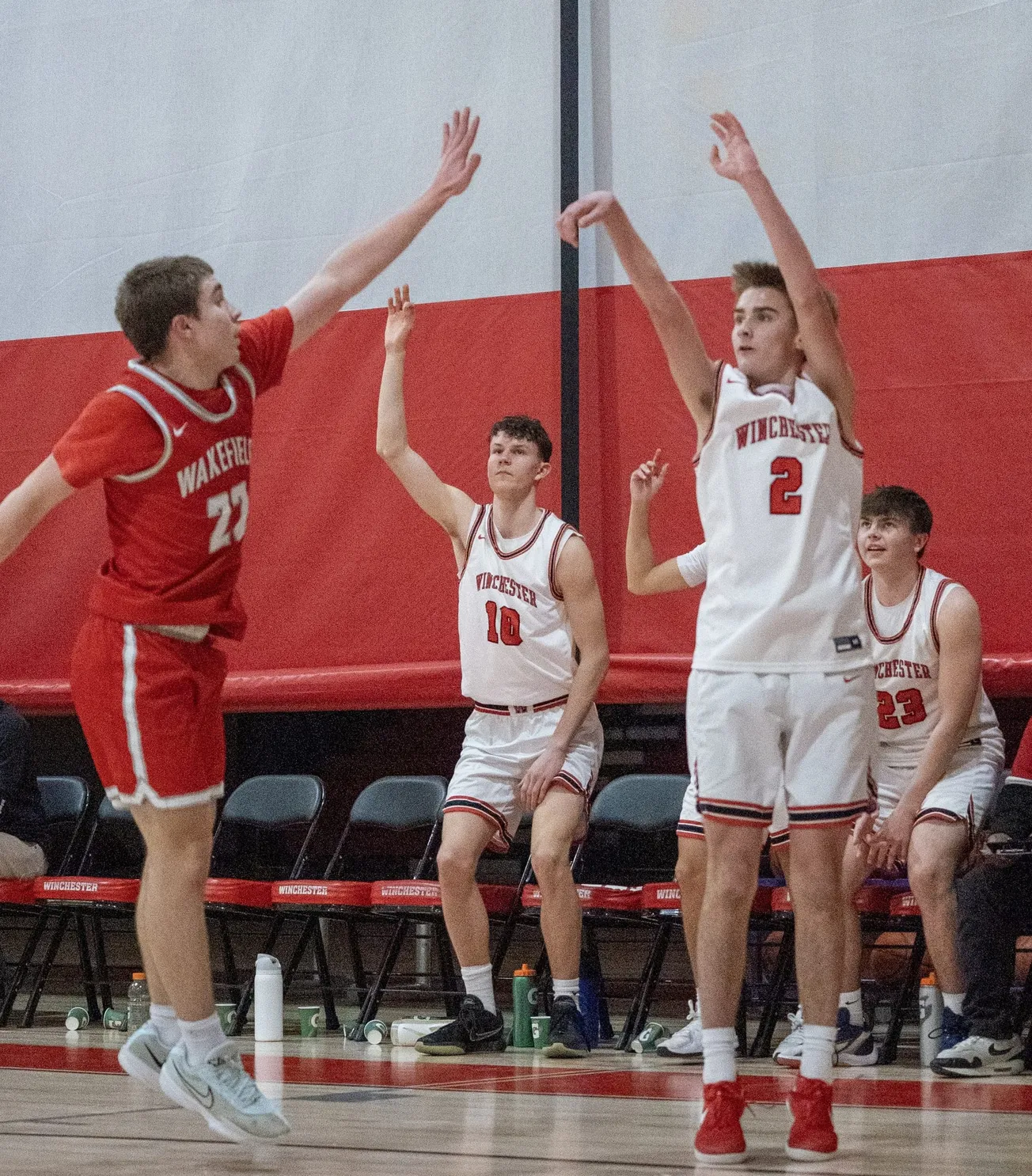Table of Contents
Seven articles approved including 13 Capital Planning requests
Town Meeting cleared seven articles off its plate during the second night of the fall event, but not without a lot of discussion and a little bit of drama.
Article 12 took up much of the night with 13 separate motions for funding for a variety of Capital Planning projects. The Select Board supported all 13 motions, but the Finance Committee stopped short at 11.
Fin Com Chairman Jeffrey Calabrese said they supported 1-10 and 13, but they couldn’t support motions 11 and 12 on principle.
In regards to motion 11, Calabrese said, the committee has a principle where it does not support engineering for a project that doesn’t come with a designated funding source.
He also said there was some concern regarding motion 12 and the strategy used in putting the project together.
The motions went as follows:
1) A request for $500,000 from the Building Stabilization Fund (BSF) for Town Hall HVAC repairs.
“To be clear this is not life extension, this is first aid life. This is putting on a Band-Aid and stopping the bleeding,” said Capital Planning Committee member Brian Vernalgia.
Approved
2) Sought $250,000 from the BSF for the Department of Public Works (DPW) for an emergency generator.
Approved
3) From the Capital Stabilization Fund (CSF), $690,000 was requested for Shore Road Culvert Repairs.
Approved
4) Request for $295,000 from CSF for a dump truck and salter to replace a 1999 vehicle that no longer passes inspection.
Approved
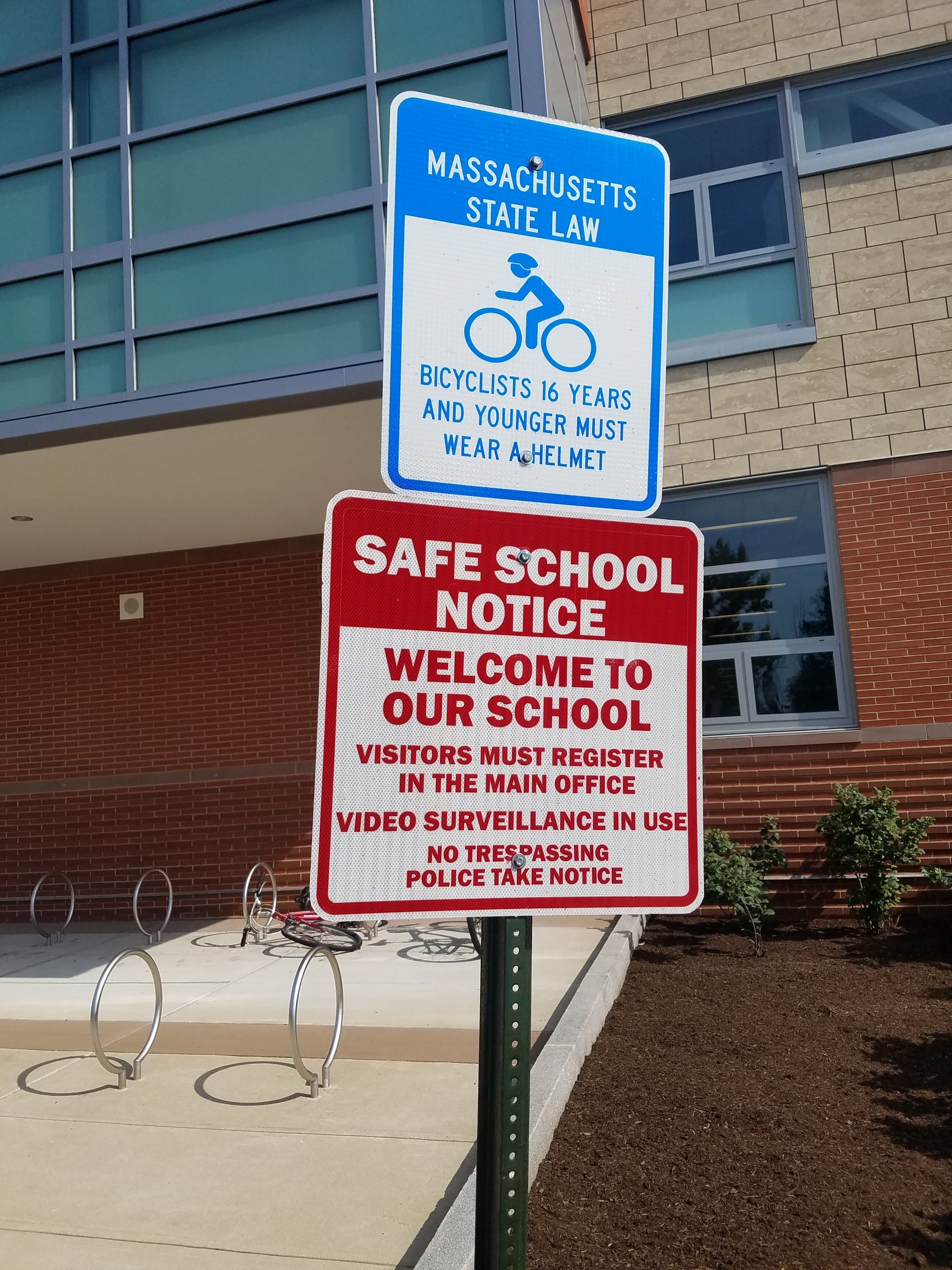
5) Request for $270,000 from CSF for School District Access Controls, which will standardize access across the school district.
“One system for all the schools in town, supported by the Risk Assessment Plan,” Vernalgia said.
Approved
6) Asked for $140,000 from the CSF for security cameras for the high school and McCall School because the cameras have “simply failed with age,” Vernalgia said.
Approved
7) Ginn Field needs lights to the tune of $157,000 in supplemental funds from CSF. Town Meeting already voted for $210,000 for engineering and design in 2023. The new request would finish the project.
Approved
8) The vote to fund a new trash truck for DPW at $90,000 came down to the use of electronic clickers, which Town Meeting voted to institute in 2021, replacing the old-fashioned standing vote.
It was approved 115-17.
9) DPW needed $100,000 (from CSF) to purchase a Trommel Screener, used to screen leaves, branches and wood chips. Vernaglia said the town currently rents one for 1-2 months per year at $20,000 a month and buying one would pay for itself in 3-4 years depending on how it goes.
Approved
10) A request for $80,000 to replace the playground surface at Vinson-Owen School (V-O) generated some concerns over why the fairly new school would already need playground maintenance.
Capital Planning Committee member Roger McPeek said the project was not unexpected. The rubber playground surface only had a lifespan of roughly 10 years.
Town Meeting member Stefanie Mnayarji wondered why V-O, along with the Lincoln School, were singled out for attention when nearly every playground in town had maintenance needs.
DPW Director Robert LaBossiere said his department did an assessment of all the school playgrounds and came up with a five-year plan. This article is part of that plan.
It was approved 116-21
The drama
It was amid the playground request that one Town Meeting member pointed out that he’d been voting no on all the motions under Article 12 thus far, not due to content but because the town had no five-year plan to deal with capital expenditures. He argued the town had a number of competing projects and wondered how the 13 put forward managed to rise to the top.
However, the Capital Planning Report spells out exactly how the committee chooses the projects to put forth.
While moderator Heather Von Mering let him say his piece, she called him “slightly out of order” since he wasn’t speaking on the playground issue. When he tried to argue the point, she ordered him, in no uncertain terms, to sit down – now, because it was her call – and she made it.
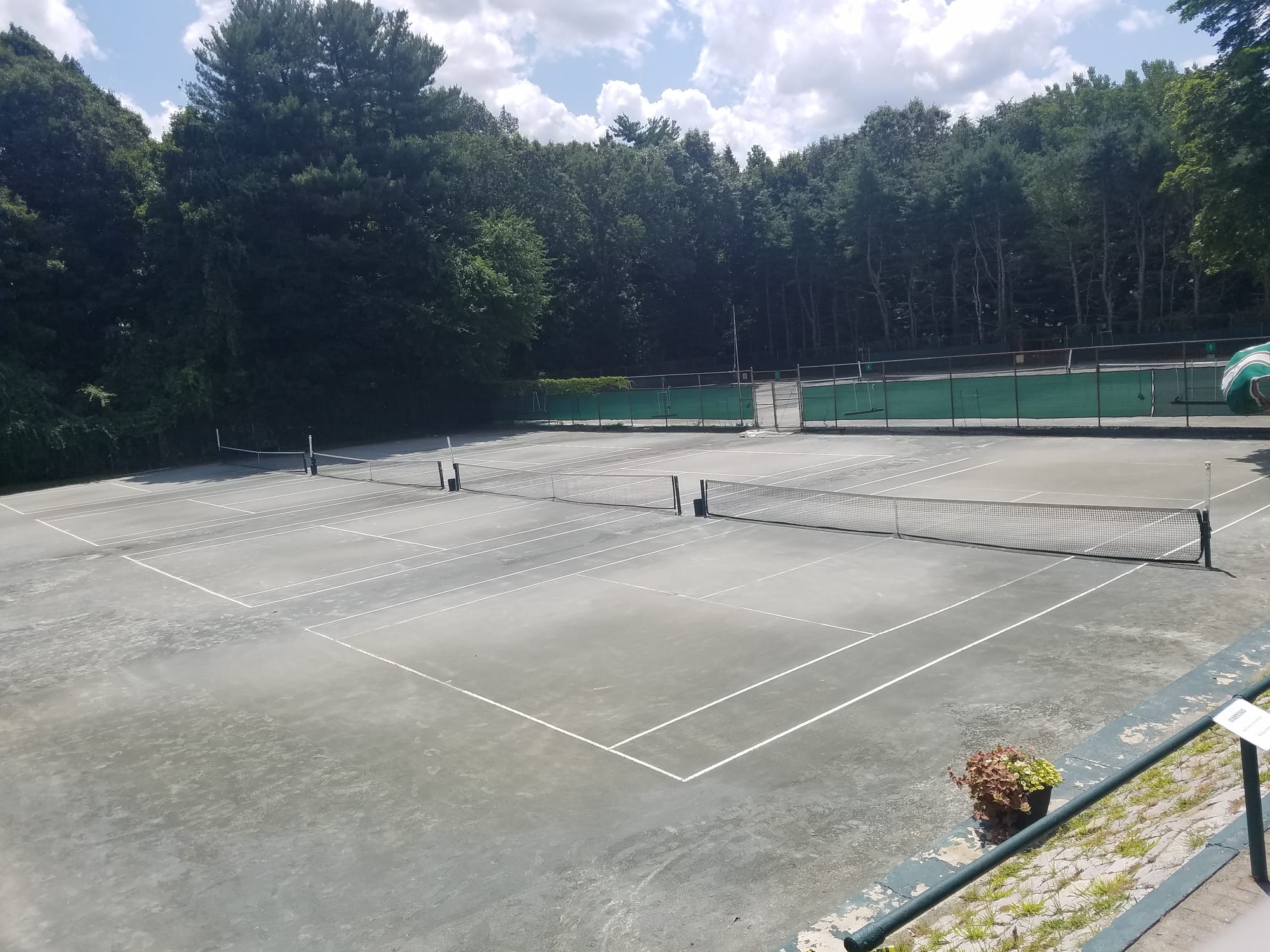
Back to business
11) Tennis created perhaps the biggest stir of the night when a request of $200,00 from free cash for engineering and design work related to renovating the Packer-Ellis Tennis courts came up for discussion.
Meeting members questioned the funding source, why other avenues weren’t pursued before coming to Town Meeting and the need to do the project at all.
One Town Meeting member said she’d like a detailed scope of the project before agreeing to pay for the engineering. She argued there would inevitably be a larger ask down the road and $200,000 was a lot to spend on tennis courts when there were more pressing issues facing the town.
McPeek called Packer-Ellis a town asset used by the high school as well as residents so it was entirely appropriate that they turn to the town for help. He pointed out the retaining wall was failing and there had been an accident in the bleacher area because of it. He also said a portion of the court was washed out in a recent flood and the courts themselves were deteriorating.
“Just take a look at it,” McPeek said. “It’s just sad … we haven’t put a dime into it forever.”
Vernaglia agreed the facility had many deficiencies, but there were possible funding sources for the actual renovation such as Capital Stabilization Fund, Water and Sewer, the newly approved Community Preservation Act, Recreation Retained Earnings or boosters to name a few.
Despite the lengthy discussion over what Timothy Matthew pointed out was only .08% of the budget, the motion to fund the engineering plan passed 112-32.
12) A motion asking for $40,000 from the Capital Stabilization Fund for Pedestrian Safety RRFBs (Rectangular Rapid Flashing Beacons) to go in on Main Street at the Mystic School and at Highland Avenue and Wolcott Road passed via clicker 116-28.
13) A request for $125,000 for a trailer generator for Water & Sewer paid for from Water & Sewer retained earnings also passed without discussion.
But wait – there’s more
With the bulky Article 12 out of the way, Town Meeting breezed through a $4 million request to pay for roof repairs for Town Hall and the library, renovation of the Town Hall Clock Tower and replacement of library windows.
McPeek called the windows an embarrassment, saying they not only admitted light but wind, rain and snow as well.
“The two buildings serve residents of all ages and stages of life,” said Select Board Chair Michelle Prior, calling both buildings important town assets and their needs critical.
The question was approved unanimously with no discussion.
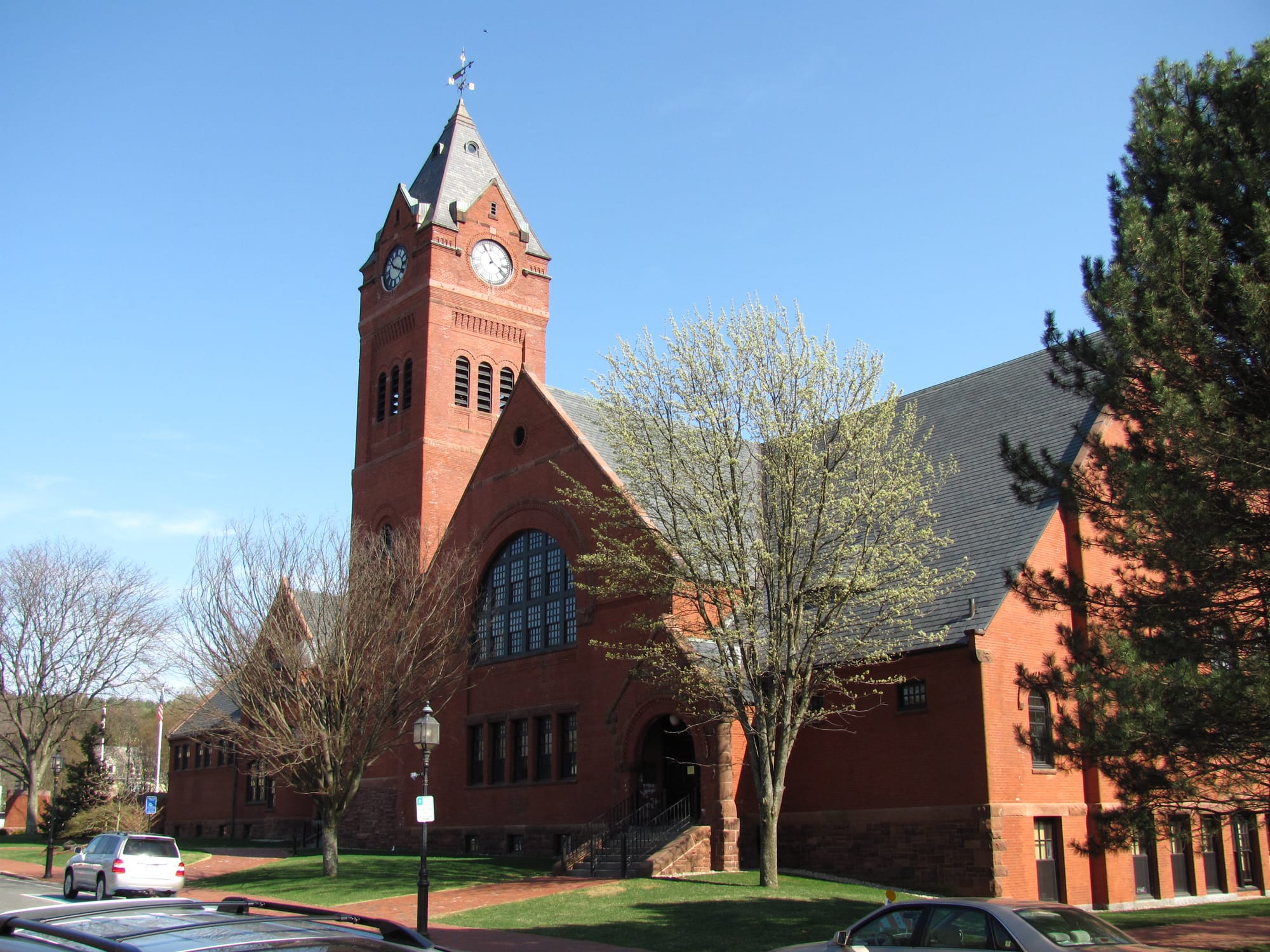
Article 14 sought just under $3 million for roof repair and partial replacement at the McCall and Ambrose schools and was also approved unanimously.
With two high school students waiting to speak, Von Mering took Article 18 out of order and brought Chris Nixon, who serves on both the Capital Planning Committee and the School Committee, to the floor. He spoke on the need for $595,000 to replace the high school gym floor and reconfigure the space for better usage.
With blistered and a worn rubber floor that is beginning to break apart at the seams, non-regulation practice courts and a regulation court with inadequate seating, Winchester High School cannot host tournaments, and has become a safety hazard, Nixon explained.
The good news is the plan will reconfigure the courts, allowing for a running track, wrestling mats, four regulation basketball/volleyball courts and seating for 750 spectators with the possibility of room for 1,500.
Nixon said they also stood to get upwards of 40 years out of the proposed maple floor, as long as it’s maintained properly. The bad news, he said, is all the bids but one came in over budget and the one under budget dropped out.
“While that’s not our fault, it is our problem,” he said.
The original ask was for $670,000 to close the gap between what was budgeted and the next lowest bid, along with a contingency plan, but two gifts totaling $75,000 from Winchester Basketball Association and Winchester Sports Foundation brought the cost down.
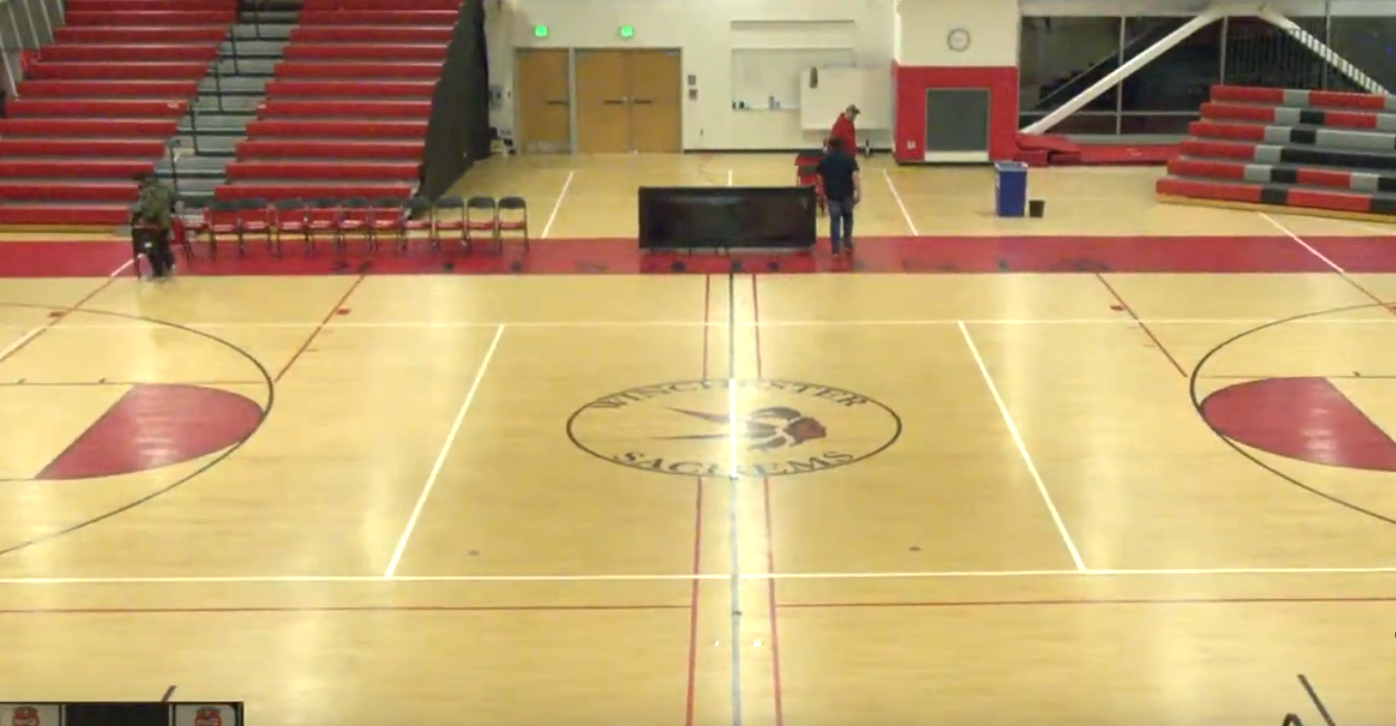
Two volleyball players spoke to the need for a new floor and how the newly designed space would benefit all who use the gym. The varsity team made it to the playoffs this year, but couldn’t host a home game due to the condition of the gym, which they called disappointing.
They also promised to make further in the playoffs next year with the new gym and Von Mering joked she would hold them to that.
The motion to approve passed unanimously.
Articles 15, A request for $845,000 to repair deteriorating concrete at the high school, Article 16 seeking $200,000 to address water quality issues along Cambridge Street and Article 17 seeking $1.7 million for the East Side Sewer Rehabilitation Project all sailed through with unanimous votes.
Specialized Energy Code
But meeting members had a lot to say regarding Article 9, the last article of the night, a request to adopt a Specialized Energy Code.
The new code is aimed at ensuring new buildings are more energy efficient by requiring them to be either all electric or easily converted to only electricity in the future.
Climate Action Advisory Committee member Josh Bers called the passage of Article 9 essential to meeting the town’s climate goals, which includes reducing carbon emissions by 80% by 2050.
Select Board member Bill McGonigle also said it was an easy move toward sustainability, would have a negligible impact on construction cost and open the town up to more grant possibilities.
“And it’s new construction only,” he said. “It’s not going to impact those of us who are looking to do a renovation or an addition. This looks to the future.”
Several electrical engineers among Town Meeting members argued it would only work if there were clean nuclear power plants nearby to support the coming increase in electrical usage.
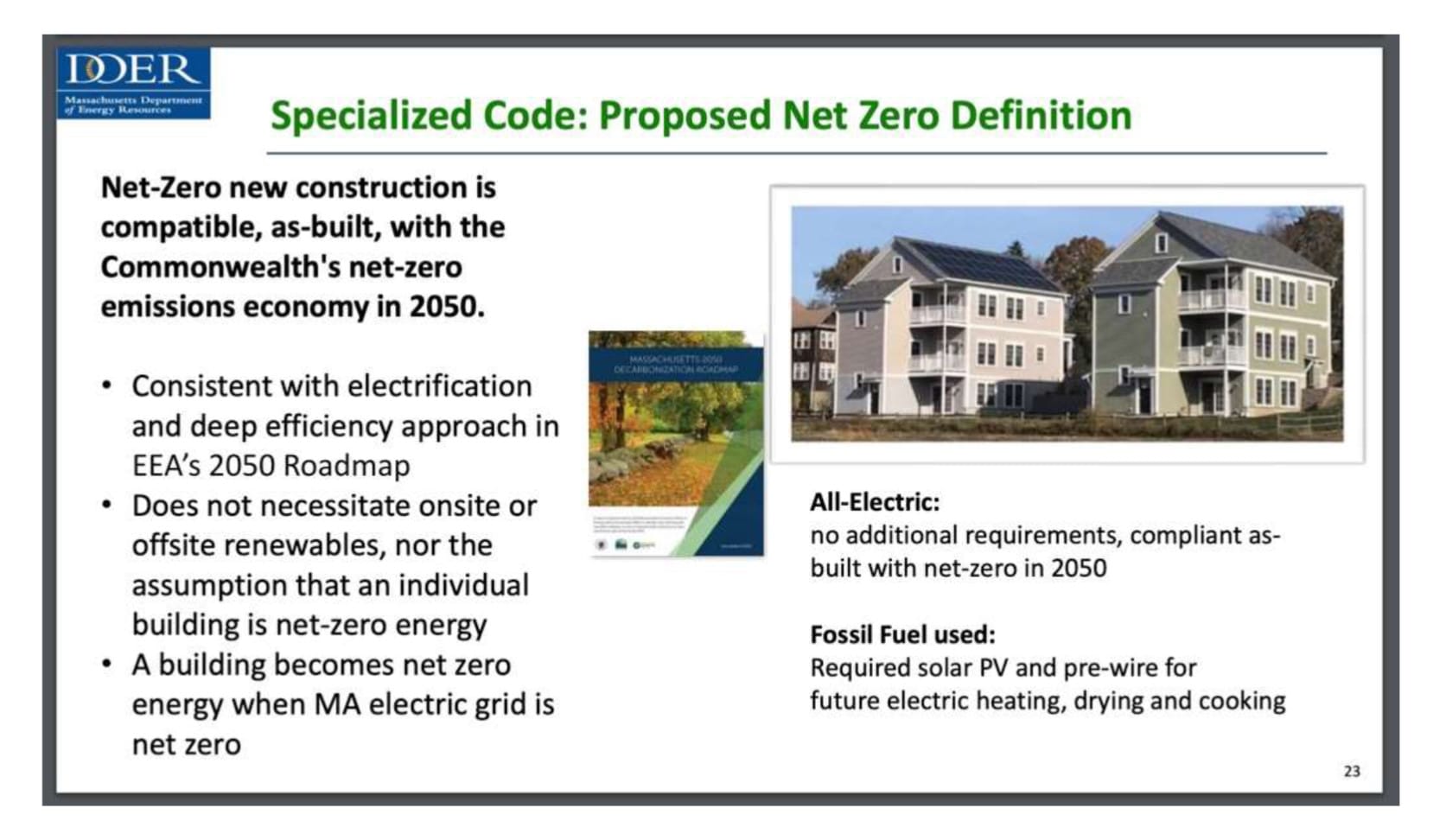
Another member asked if it was such a great idea, why have any exclusions, why not make it a requirement for additions and renovations as well. And yet another asked the town to wait. Since the new codes only went into effect in 2023, she argued there is less than a year’s worth of data to see what kind of impact the new code might have on the community.
Winchester High School student Vita Bialiauskaya, however, implored members to think about her generation.
“Town Meeting, can we have a real heart-to-heart,” asked the student member of the Climate Action Advisory Committee. “This is not just a policy, it’s a promise.”
She said climate change is a very real concern among her peers and a heavy load for young people to carry, “this is why question 9 matters.”
Town Meeting members agreed and approved the new energy code 94-41. It will go into effect in July 2025.
Von Mering said Monday’s third night of Town Meeting would start with Article 4, jump to 20 and go “until we complete our business … and there’s a good chance we could be done Monday evening.”

